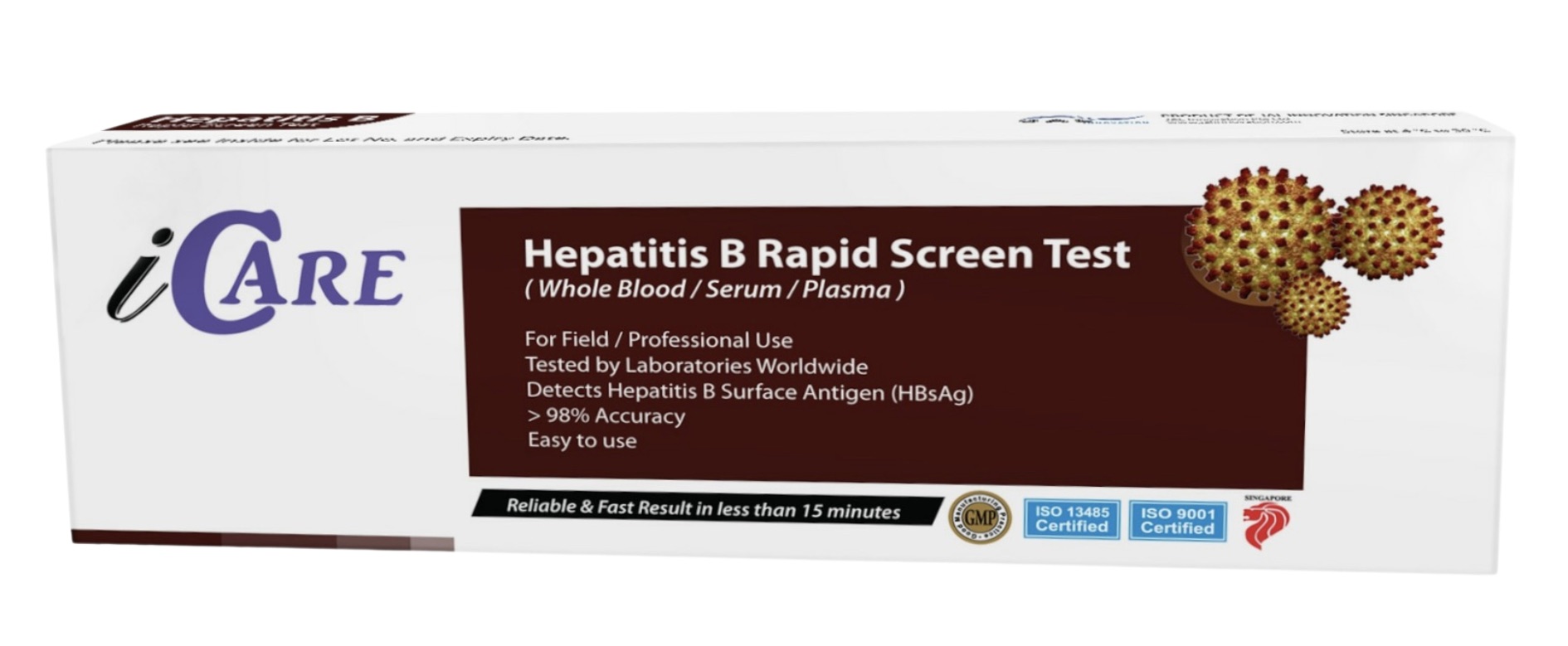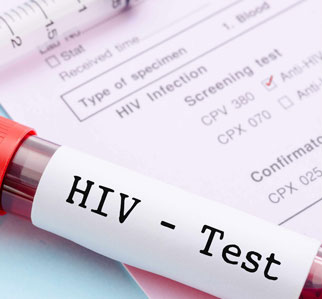Laos, a landlocked country in Southeast Asia, faces significant healthcare challenges due to its geography, climate, and economic constraints. The prevalence of infectious diseases such as dengue fever, malaria, hepatitis B and C, HIV/AIDS, and typhoid fever has made rapid diagnostic testing essential for early detection and treatment.
The Lao government, in collaboration with international health organizations and private partners, has prioritized the availability of high-quality rapid test kits across both urban and rural regions. This article explores Laos’ healthcare landscape, the role of rapid testing contributing to improved healthcare access.
Geographic, Regional, and Political Impact on Healthcare in Laos
Geographical Challenges
Laos is predominantly mountainous, with many communities located in remote regions that have limited access to healthcare facilities. The country’s tropical climate contributes to the spread of mosquito-borne diseases such as dengue fever and malaria. Floods during the rainy season often worsen healthcare delivery, making rapid and mobile diagnostic solutions critical.
Urban centers like Vientiane, Luang Prabang, and Savannakhet have better healthcare infrastructure, but rural areas in Xieng Khouang, Oudomxay, and Attapeu still struggle with inadequate medical facilities. The government has been focusing on bridging this gap by deploying mobile clinics and ensuring that rapid diagnostic kits reach even the most isolated regions.
Political and Economic Factors
As a developing nation, Laos relies heavily on international aid and partnerships for healthcare funding. Government policies emphasize preventive healthcare, with rapid testing being a key strategy to control infectious diseases. Through collaborations with the World Health Organization, ASEAN health initiatives, the country has improved its healthcare services, particularly in disease surveillance and outbreak management.
Dengue Fever Rapid Testing in Laos
Dengue Outbreaks and Government Response
Dengue fever is a recurring health crisis in Laos, particularly in cities such as Vientiane, Savannakhet, and Pakse. Due to the high mosquito population, dengue outbreaks put immense pressure on hospitals and clinics. The government has responded by integrating rapid dengue test kits into public health programs, ensuring that cases are identified early and managed effectively.

Types of Dengue Rapid Test Kits Used
- Dengue NS1 Antigen Rapid Test Kit – Detects the virus in the early stages of infection.
- Dengue IgG/IgM Antibody Rapid Test Kit – Identifies both current and past dengue infections.
The government collaborates with wholesale dengue rapid test kit suppliers to ensure that remote districts, including Luang Namtha and Xieng Khouang, receive adequate medical support during peak dengue seasons.
Dengue Testing Initiatives
- Free dengue screening programs in hospitals and health centers in Vientiane and Luang Prabang.
- Deployment of mobile testing units in rural areas such as Namtha and Champasak.
- Public health campaigns educating residents about early symptoms and prevention measures.

Malaria Rapid Testing in Laos
Malaria Risk and Government Intervention
Malaria remains a serious concern, especially in forested regions like Attapeu, Sekong, and Phongsaly, where transmission rates are high. The government has implemented malaria rapid test kits in these areas to facilitate early diagnosis and treatment.
Types of Malaria Rapid Test Kits Available
- Plasmodium falciparum (Pf) Rapid Test Kit – Detects the most severe malaria strain.
- Plasmodium vivax (Pv) Rapid Test Kit – Identifies another common malaria variant in Laos.
- Malaria Pf/Pv Combo Test Kit – Provides broad detection of different malaria strains.
With assistance from international organizations, the government ensures that clinics in Xayaboury, Bokeo, and Luang Namtha have sufficient malaria test kits, even in hard-to-reach locations.
Malaria Testing Strategies
- Routine malaria screening in public hospitals in Savannakhet and Pakse.
- Community-based malaria surveillance programs in Xayaboury and Oudomxay.
- Collaboration with WHO-approved suppliers to maintain an adequate stock of test kits.

Hepatitis B and C Rapid Testing in Laos
Hepatitis Prevalence and Testing Measures
Hepatitis B and C pose a significant health risk in Laos, particularly in Vientiane, Pakse, and Thakhek. Many cases remain undiagnosed, increasing the risk of complications such as liver disease and cancer.
Hepatitis Rapid Test Kits in Use
- Hepatitis B Surface Antigen (HBsAg) Rapid Test Kit – Identifies active hepatitis B infections.
- Hepatitis B Core IgM Antibody Test Kit – Detects recent infections.
- Hepatitis C Antibody Rapid Test Kit – Screens for hepatitis C exposure.
To ensure widespread access to testing, the government has partnered with hepatitis B rapid test kit manufacturers and suppliers, making these kits available in health centers across Savannakhet, Luang Prabang, and Xieng Khouang.
Hepatitis Testing Government Policies
- Compulsory hepatitis testing for pregnant women in hospitals in Vientiane and Pakse.
- Workplace screening programs in industrial zones in Savannakhet and Luang Prabang.
- Free hepatitis screening in government clinics in Thakhek and Xayaboury.

HIV/AIDS Rapid Testing in Laos
HIV/AIDS Situation and Government Initiatives
While Laos has a lower HIV/AIDS prevalence compared to neighboring countries, the government has expanded HIV rapid testing programs to ensure early detection and treatment. Key cities such as Vientiane, Pakse, and Savannakhet have seen increased investments in HIV screening services.
HIV Rapid Test Kits Used
- HIV 1&2 Rapid Test Kit – Provides fast and reliable HIV status results.
- HIV Combo Test Kit – Detects both HIV-1 and HIV-2 antibodies.
The government has partnered with HIV rapid test kit distributors to ensure free and confidential HIV testing, particularly in high-risk areas such as border towns in Bokeo, Champasak, and Xayaboury.

HIV Testing Strategies
- Community-based HIV screening programs in entertainment districts of Vientiane and Luang Prabang.
- Free HIV testing for pregnant women and newborns in Pakse.
- Integration of HIV rapid testing into tuberculosis and hepatitis screening programs in Savannakhet.
Typhoid Fever Rapid Testing in Laos
Typhoid Fever and Rapid Testing Measures
Typhoid fever remains a major concern in Laos, particularly in rural areas with poor sanitation in Oudomxay, Xieng Khouang, and Phongsaly. Rapid diagnostic testing plays a crucial role in early treatment and outbreak prevention.
Typhoid Rapid Test Kits Available
- Typhoid IgG+IgM Rapid Test Kit – Detects antibodies against Salmonella Typhi.
- Typhoid NS1 Rapid Test Kit – Provides early detection of the infection.
The government works with typhoid rapid test kit suppliers to ensure these kits are widely available in both urban hospitals and remote health centers.
Government Interventions for Typhoid Testing
- Routine typhoid screening in major hospitals in Vientiane, Luang Prabang, and Savannakhet.
- School health programs in Thakhek and Pakse to educate children on typhoid prevention.

Conclusion
The Lao government has made significant progress in expanding rapid diagnostic testing for infectious diseases across major cities and rural areas. By partnering with rapid test kit suppliers and increasing investments in public health initiatives, Laos is strengthening its disease prevention and control strategies. These efforts will continue to play a crucial role in improving healthcare access, ensuring early diagnosis, and protecting the health of the Lao population.
FAQS About Rapid Test Kits
1. Why is rapid testing important for disease control in Laos?
Rapid testing enables early detection, allowing for timely treatment and reducing disease transmission, especially for infections like dengue, malaria, hepatitis, HIV/AIDS, and typhoid.
2. Which cities in Laos have the most extensive rapid testing facilities?
Key cities include Vientiane, Luang Prabang, Savannakhet, Pakse, Thakhek, Oudomxay, and Champasak, where the government has implemented extensive rapid testing programs.
3. What types of rapid test kits are available in Laos?
Laos provides dengue, malaria, hepatitis B and C, HIV/AIDS, and typhoid rapid test kits across hospitals, clinics, and mobile testing units.
4. How is the Lao government improving access to rapid testing in rural areas?
The government deploys mobile testing units, trains village health volunteers, and partners with NGOs to ensure test availability in remote regions.
5. What are the future plans of the Lao government regarding rapid testing?
Plans include expanding test kit distribution, enhancing disease surveillance, and strengthening collaborations with global health organizations.

